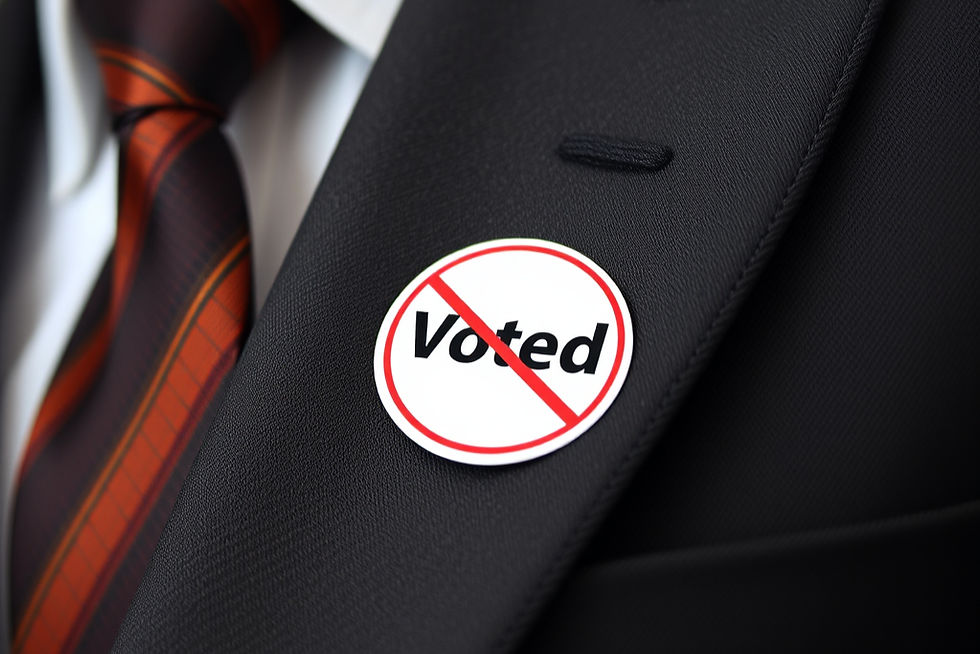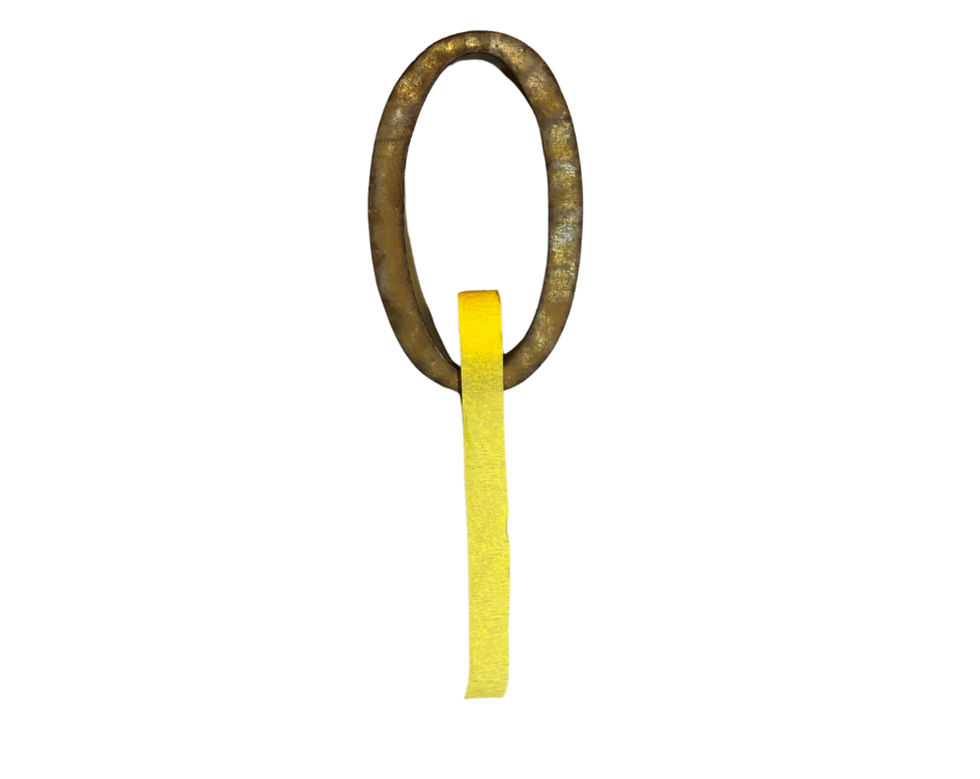On Choosing Not to Vote
- Clinton Wilson
- Nov 4, 2025
- 3 min read

Why I No Longer Vote
I grew up believing voting was sacred, not dramatic or heroic, just one of those moral duties you honored without question, like telling the truth or showing up for church. Election nights were ritual: my parents voted together, we watched the maps change colors on TV, and I was told that participating meant you were a good citizen.
When I finally turned eighteen, just days before a presidential election, I treated it like initiation. I registered early, studied platforms, took notes during debates. My first ballot mirrored my parents'. It would be the last time.
College shifted things. I encountered intellectual rigor and a form of compassion I hadn’t found in church pews. I still voted diligently and habitually, until one day I couldn’t. Now, every election feels like I’m being asked to perform belief in a system I no longer trust. I try not to vote, and each time it feels less like negligence and more like honesty.
This isn’t apathy. It’s erosion.

Two issues shaped my political conscience more than any others.
Gun violence. I’ve long believed the Second Amendment should be repealed, fully, not revised. Gun ownership should be a revocable privilege, like driving. But election after election, despite massacres and public grief, even speaking of repeal remains taboo. The violence is absorbed, normalized.
Climate change. Here, the silence is quieter but more devastating. It appears in debates, but as a bullet point between tax policy and healthcare. Candidates offer plans sized for campaigns, not the planet. Politics treats climate as an issue, not as the condition in which all issues now exist.
What broke was not outrage, but trust. The system can acknowledge catastrophe and still refuse to act.

I don’t believe voting is useless. I believe participation for me has become dishonest.
Because a vote is a form of consent. And I can no longer consent to:
An Electoral College that can overturn the popular vote.
A Senate where 1.6 million people in North and South Dakota have the same power as 59 million in California and New York.
A system where money is speech, and candidates are pre-selected by donors before ballots are even printed.
I care deeply. That’s precisely why I can’t keep performing belief.
A Tradition of Refusal
Refusing to vote isn’t new. It isn’t always apathy. Sometimes it’s conscience.
Hannah Arendt warned that evil, and by extension, moral failure, often comes not from monsters but from ordinary people following ordinary procedures. Bureaucracy dulls judgment. Institutions collapse not with explosions but with quiet obedience.
Byung-Chul Han writes that modern politics turns participation into performance. Under exhaustion and constant spectacle, voting becomes another ritual of visibility, something we do to be seen doing.
David Foster Wallace said political language is “a set of lies agreed upon”—a system where words like freedom, justice, or reform are emptied out and repackaged until meaning no longer matters, only optics.
Vaclav Havel argued that the first act of resistance is “living in truth”—refusing to perform beliefs you no longer hold, even if the refusal is silent, small, unseen.
Henry David Thoreau, Simone Weil, Leo Tolstoy, Albert Camus—they all, in different ways, arrived at the same precipice: what do you do when participation feels like complicity?
Where That Leaves Me
I still believe policy can save lives. I still believe democracy matters. But belief in democracy is not the same as belief in its current machinery.
Maybe this will change. I hope it does. I would love to walk into a polling place again with conviction, not resignation.
For now, I live here: grateful for democracy, estranged from its practice, unable to pretend enthusiasm where there is disillusion. This is not a manifesto. It is a confession.
Silence, in my case, is not apathy. It is the last form of truth I know how to offer.




Comments